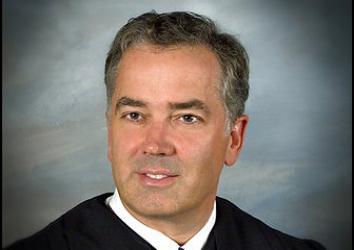Last December, I wrote that “by necessity, judicial decrees legalizing same-sex marriage tend to be messy things… [g]iven the issue’s relative novelty.” Five months later, the issue is no longer novel, and federal judges across the country are writing impressively cogent and increasingly eloquent defenses of marriage equality. These judges know this is their shot at a very specific kind of immortality, and they seem to be in subtle competition with each other to write the one marriage equality opinion that history remembers.
In his opinion striking down Pennsylvania’s gay marriage ban, U.S. District Judge John E. Jones III may have just taken the cake. Jones, a Republican endorsed by Rick Santorum, walks us lucidly through the granular legal details of equal protection and due process. It’s an impressive analysis, thorough and thoughtful—but the real gut-punch comes in Jones’ peroration, as the judge places his ruling in the broader historical context of civil rights in America:
The issue we resolve today is a divisive one. Some of our citizens are made deeply uncomfortable by the notion of same-sex marriage. However, that same-sex marriage causes discomfort in some does not make its prohibition constitutional. Nor can past tradition trump the bedrock constitutional guarantees of due process and equal protection. Were that not so, our would still be a racially segregated nation according to the now rightfully discarded doctrine of “separate but equal.” … In the sixty years since Brown [v. Board of Education] was decided, “separate” has thankfully faded into history, and only “equal” remains. Similarly, in future generations the label same-sex marriage will be abandoned, to be replaced simply by marriage.
Jones then takes clear aim at the animus that enshrined Pennsylvania’s marriage ban into law, in a single sentence destined to be repeated by gay rights advocates and studied by historians of marriage equality decades hence:
We are a better people than what these laws represent, and it is time to discard them into the ash heap of history.
A better people, indeed. Good riddance to bad rubbish, and welcome to the fold, Pennsylvania.
